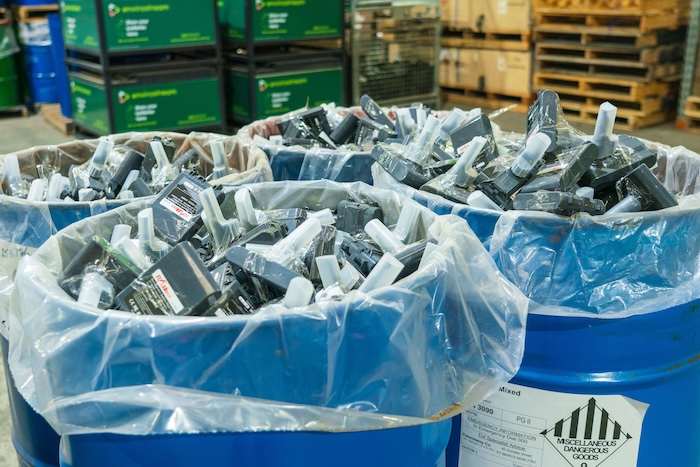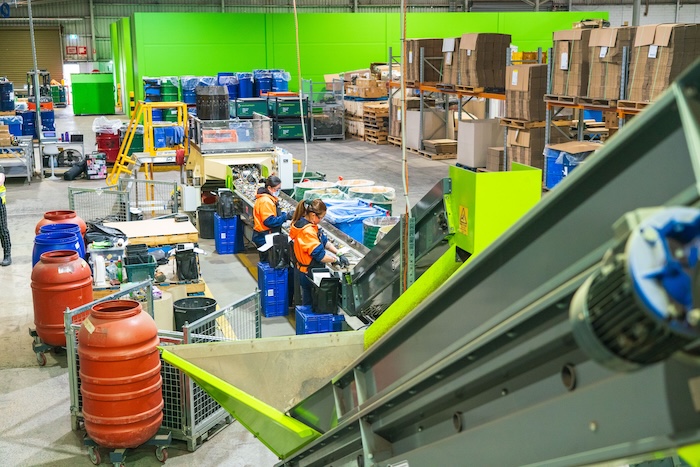A battery recycling company has raised cash to sort out a supply chain bottleneck in Victoria, but talks are still underway to match a federal grant offered in February.
ASX-listed Livium raised $4.5 million from investors last week at the mini price of 1.25c a share, to build a single hub in Victoria where subsidiary Envirostream can both collect and process dead lithium-ion batteries.
Livium is also behind VSPC, a company that won $30 million from the Australian Renewable Energy Agency (ARENA to build a demonstration factory in Brisbane to make lithium ferro phosphate (LFP) and lithium manganese ferro phosphate (LMFP) powders for battery cathodes.
It has until the end of the year to raise the matching funds, discussions for which managing director Simon Linge says are “advanced”.
Part of the most recent funding round will go towards exploring solar panel recycling and a University of Melbourne technology that can extract rare earths from electric motor magnets.

Image: Envirostream
But the majority of the cash will go to beefing up Envirostream’s operations, because right now it’s operating out of two sites: a recycling site which is only functioning at 40 per cent of what it could do and a warehouse that stores batteries that have been made safe.
Livium managing director Simon Linge says the problem is logistics, as they can only accept and discharge a certain volume of batteries into the warehouse at a time, which means they need to slow deliveries which leads to irritated clients.
And with clients like LG Energy, Byd and Volvo, it pays to keep them happy.
Linge says they’re aiming to handle between 15,000 and 20,000 tonnes of batteries a year by 2035, a significant proportion of a market he expects to be worth about $500 million.
But today, the market for battery recycling is still very small.
Envirostream was a battery recycling pioneer but was too early for the first wave of dead lithium-ion batteries. Livium bought it out of financial distress in 2019, and it only made a maiden profit this year.
“We’re pitching hard to still get more volume. The market today is maybe a 5,000 tonne market [total in Australia],” he tells Renew Economy.
“Most of that still sits in warehouses and clients are still wondering what to do with it, or making a decision on when to have these batteries recycled. But we’re having more and more clients getting their head around the fact that this is a dangerous good.”
The company recycles medium batteries, of the ilk that power lawn mowers, home batteries, and e-scooters, up to large devices such as bus batteries and grid-scale storage units.
Linge says they’re starting to see volumes flow through from the 1 per cent of batteries that fail in their first year and a wave of first generation end-of-life batteries.
Currently, Envirostream charges companies to recycle their batteries and sells the steel, copper and aluminium domestically and the graphite, nickel, cobalt and lithium – the so-called “black mass” – to a partner in South Korea for a fee tied to London Metal Exchange pricing.
If you would like to join more than 26,000 others and get the latest clean energy news delivered straight to your inbox, for free, please click here to subscribe to our free daily newsletter.

Rachel Williamson is a science and business journalist, who focuses on climate change-related health and environmental issues.

